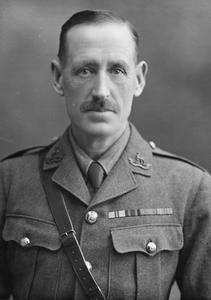Guernsey at War
As Europe went to war in 1914, the Royal Guernsey Militia was mobilised to replace the regular army garrison which was withdrawn to join the British Expeditionary Force m France and Flanders.
Militiamen could not be sent overseas but the States decided to offer a contingent of trained men to the British Government. Two full strength infantry companies and a machine gun company were sent to join the 16th (Irish) Division which was forming in Ireland as part of Kitchener’s all-volunteer army. One company was attached to 6 Royal Irish Regiment and the other to 7 Royal Irish Fusiliers. The machine gun company went to 6 Royal Irish Fusiliers.
A Divisional Ammunition Column was formed from the Royal Guernsey Artillery and sent to 9th (Scottish) Division. The 16th Division took part in the fighting on the Somme in 1916 and at Messines and Ypres in 1917. The Guernsey Companies suffered heavy casualties.
By 1917 a large proportion of the Islands’ fittest men were at the Front, leaving the Bailiwick with a depleted workforce. Farmers and growers often appealed to the Tribunals for men to be spared from active service for essential jobs on the land. Few were granted more than a few months’ respite. Many young women had also left the island to do war work such as nursing or working in munitions factories. Some made uniforms or worked in canteens for the troops. Others joined the newly formed Women’s Legion, which became the Women’s Army Auxiliary Corps. Those who remained took on jobs which were traditionally done by men such as greenhouse hands, tram conductors and drivers. Women also worked in shops, banks and offices. Many also did voluntary work, such as helping in the communal kitchens which were set up to feed schoolchildren when food and fuel shortages began to hit the island.
The RGLI – Royal Guernsey Light Infantry History The Royal Guernsey Light Infantry – A Timeline
Royal Guernsey Militia, at the Belvedere Field, being inspected by Guernsey's Lieutenant Governor, General Sir Reginald Clare Hart, V.C.
They were shortly to join the 6th Bn. Royal Irish Regiment.
Solders who served in WW1 from Guernsey







